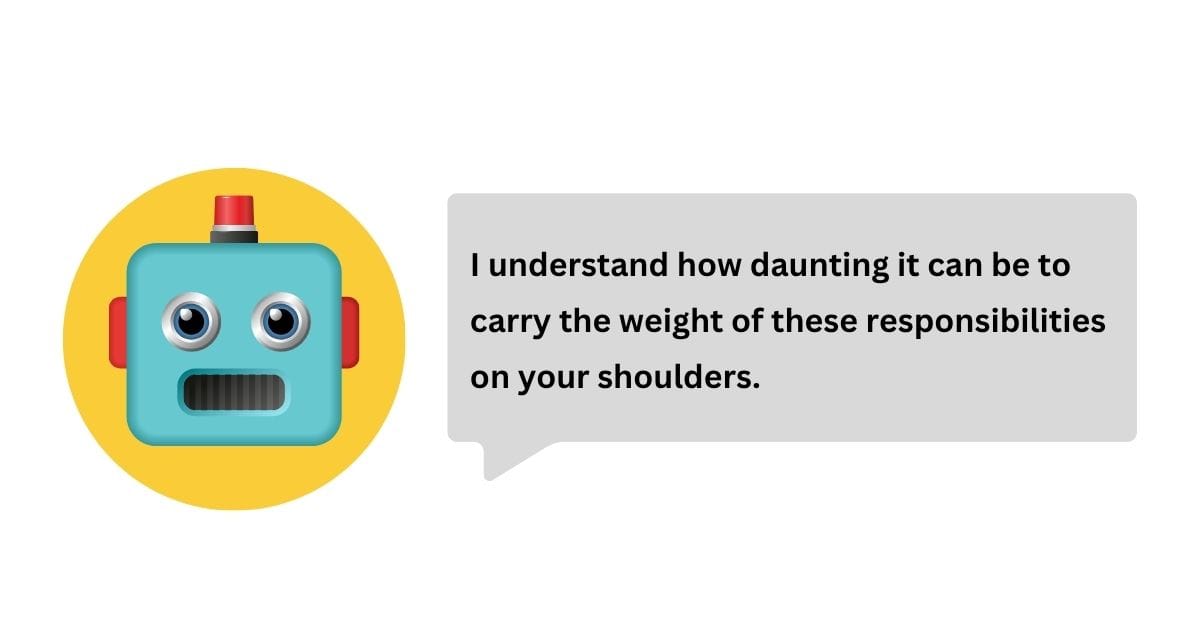Dear Friend, Are you using AI to respond to my texts?

Hey, I just wanted to mention something that’s been on my mind. I’ve noticed that some of your messages seem like they might be written by AI. I totally get the appeal—it can be super helpful—but I really value hearing from you directly. Your thoughts and personality matter to me, and I’d much rather connect with the real you than with something generated. Hope that makes sense! - Rachel ChatGPT
Yes, I prompted ChatGPT to write a message to a fictional friend about them using artificial intelligence (AI) to respond to my messages. My mind nearly melted at the hypocrisy of my request. ChatGPT seemed unfazed. To be transparent, I used AI in the writing of this article, but only where I explicitly called out that I used AI. The rest of it is written by me.
South Park’s Clyde isn’t the only one using AI to text a loved one.
Clyde uses ChatGPT to respond to Bebe's texts
South Park’s perspective is backed up by research:
- “He’s a god-damned dreamboat!” AI does a good job at providing emotional support.
- “If Bebe found out, I’d be a dead man.” People perceive using AI to write messages as lower effort and less investment in the relationship.
What can we learn from the research on AI-mediated communication in personal relationships, like using ChatGPT like Clyde to write texts to loved ones?
Is AI better at providing emotional support?
According to recent research, yes.
In a recent study (Meng, 2025), researchers asked participants to craft support messages to someone seeking help online. Participants could use AI in any way they wish to craft the messages, which resulted in messages written by:
- Humans without AI
- AI without humans
- AI and edited by humans
- Humans with AI guidance
These messages were then evaluated for different features of support in each message. Researchers found the following features of support:
- Emotional support: expressing empathy to alleviate distress
- Informational support: providing suggestions or advice to solve a problem
- Esteem support: conveying encouragement to boost someone’s evaluation of themself
- Companionship: alleviating someone’s loneliness and increasing feelings of belonging
- Reciprocal self-disclosure: sharing personal experience as relatable insights
The researchers found that messages written by or with AI provided more comprehensive support than messages written by a human without AI. While there weren’t any differences seen across messages written by the different author groups for esteem support, messages written by or with AI were more likely to include emotional support, informational support, and companionship. Messages written by humans only were more likely to share personal stories as reciprocal self-disclosure, which makes sense since AI doesn’t have a personal history of experiences.
In another study (Yin, 2024), participants evaluated messages written by humans and written by AI based on whether the message made them feel heard. After reading a message of support, participants were asked to answer a series of six questions to measure how heard they felt. “Reading this response makes me feel affirmed/validated/seen/accepted/cared for.”
The researchers found that messages written by AI can make people feel heard. AI-generated responses had more positive reactions from people than human-generated responses.
This study also highlighted that AI-generated and human-generated messages had different types of support. They compared emotional support (to make others feel better) and practical support (to solve a problem). They found that AI provided less practical support and more emotional support than human responders. They also found that human responders were more likely to share related personal experiences. Participants' feeling heard was better correlated with emotional support than with practical support.
But… people don’t like it when you use AI even if it’s “better”
It turns out South Park’s Clyde was right to fear Bebe finding out he was using ChatGPT to respond to her texts.
In Yin’s study evaluating how well AI-generated and human-generated messages made recipients feel heard, participants were told that the message was either written by AI or a human, but the label wasn’t always accurate. They found that an AI label devalued the emotional support that was provided. Even if it was written by a human, being told that it was written by AI made it less valuable. And those AI responses with better emotional support that were labeled as authored by AI? They were also seen as less valuable too.
Truly feeling heard isn’t just the message; it’s also the source of the message. A human with their own challenges and a finite amount of time is a better source. Participants felt more connected to messages that were labeled with human authorship.
Another study (Lui, 2024) found similar results when evaluating people using AI to write messages to their partner compared to writing the message on their own. Participants reading messages written with AI help perceived that their partner expended less effort and felt less satisfied with their relationship and more uncertain about their partner than participants reading messages written without the help of AI.
The investment and effort people put into a relationship are highly valued and important for the relationship's health.
I'd love to hear from you. How do you feel when you receive a message from a friend that you think was written by AI? Send me a message.
Take aways
- Messages written by or with AI included more emotional support than messages written without AI. Emotional support helps people feel heard.
- The source is as valuable as the content. When the recipient knows AI wrote the message, the impact of the empathy and emotional support is devalued.
- Writing messages with AI (even as augmentation) is perceived as less effort and less valuable to relationship building and maintenance than writing a message of support without AI.
References
Liu, B., Kang, J., & Wei, L. (2024). Artificial intelligence and perceived effort in relationship maintenance: Effects on relationship satisfaction and uncertainty. Journal of Social and Personal Relationships, 41(5), 1232–1252. https://doi.org/10.1177/02654075231189899
Meng, J., Zhang, R., Qin, J., Lee, Y.-J., & Lee, Y.-C. (2025). AI-mediated social support: The prospect of human–AI collaboration. Journal of Computer-Mediated Communication, 30(4). https://doi.org/10.1093/jcmc/zmaf013
Yin, Y., Jia, N., & Wakslak, C. J. (2024). AI can help people feel heard, but an AI label diminishes this impact. Proceedings of the National Academy of Sciences, 121(14), e2319112121. https://doi.org/10.1073/pnas.2319112121





